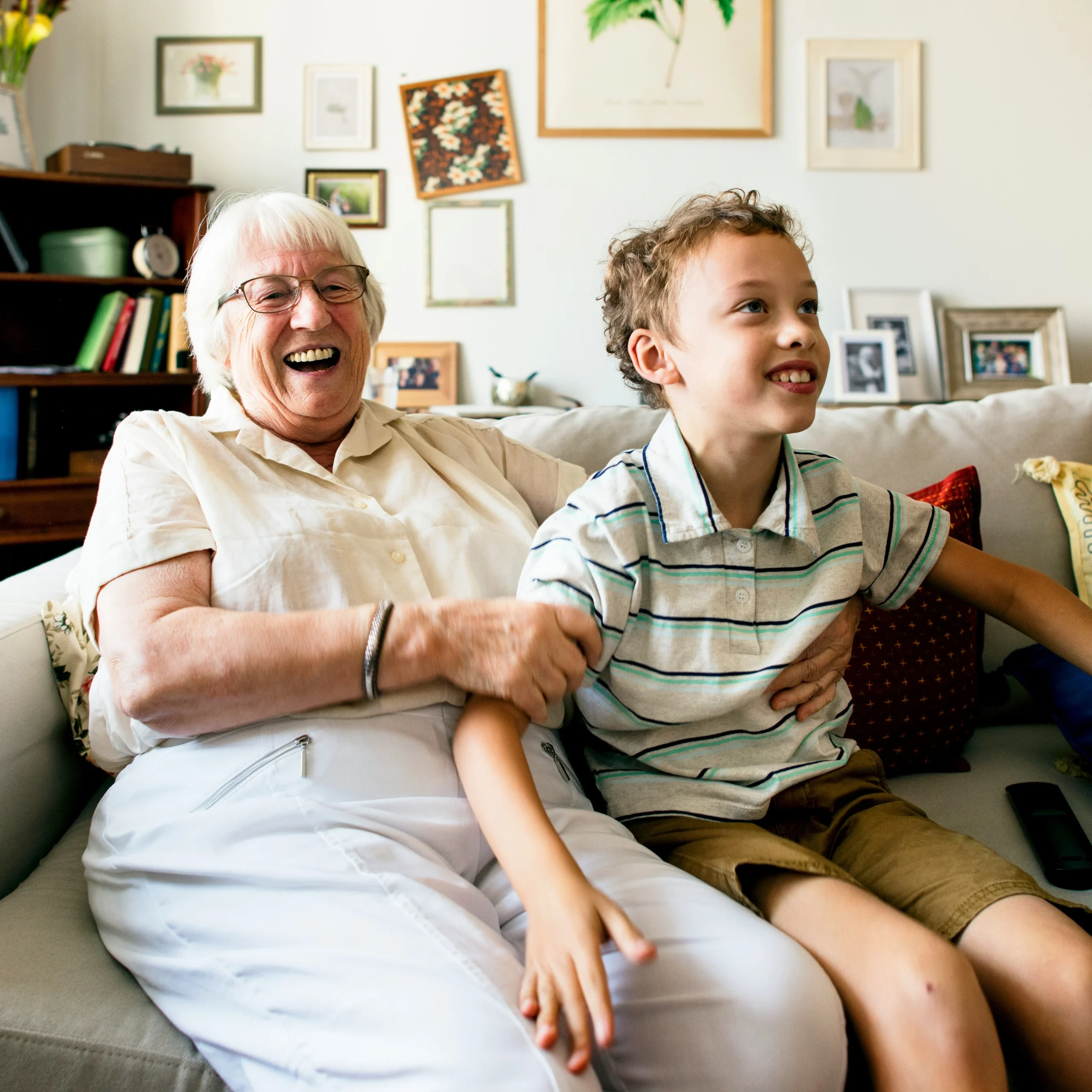
Sometimes, all we need is a companion. A person who can be by our side, giving us a sense of comfort and fellowship. While every human being has an innate need for connection, this becomes even more important to our personal well-being as we age. From engaging in social activities to assisting with physical exercise to providing mental stimulation, a companion protects and supports older adults. As an increasing number of aging citizens carry out their strong desire to age in place, companionship services for seniors are growing in popularity – and in need.
Elderly companion care is a service you can depend on to assist with what the industry calls Activities of Daily Living (ADLs). It’s a non-medical senior care service that focuses on providing seniors with company, friendship, help where needed, emotional support and social engagement. If your loved one is relatively independent but also finds it difficult to make it through a full day on their own, a companion may be just the form of senior care they need.
Let me paint you a picture.
Lionel is 80 years old and, although still quite autonomous, he has arrived at a point in his life when he has certain physical and emotional limitations that must be recognized. Over the last several years, he has experienced changes in his health, social connections and daily living capabilities.

Here’s a closer look at Lionel’s current state, which clearly indicates his need for additional care.
Reduced mobility: He struggles to move around easily, which makes it difficult to perform daily tasks, attend social gatherings or even enjoy hobbies that require some level of physical activity.
Declining health: Lionel has a few health issues that don’t require regular medical care, but they do impact his daily living.
Decreased energy levels: In general, he is tired, which affects his ability to keep up with housework, cooking and other routine tasks.
Loneliness and isolation: Since Lionel lives alone, he is isolated. His wife died three years ago, and many of his closest friends have passed on.
Need for companionship: Lionel is a social man by nature, and he still has a strong desire to talk and share his experiences. He needs someone who can provide emotional support and company.
Mild cognitive impairment: Lionel is quite sharp considering his age, but he is beginning to experience a slight yet noticeable decline in his cognitive abilities, including his memory and problem-solving skills. This doesn’t impede his independence, but it does affect his day-to-day life.
Limited social interaction: Due to his physical limitations and lack of the full social network he once had, Lionel now has fewer opportunities to interact with others.
Desire for independence: Lionel is a reasonable man. He wants to maintain as much independence as possible, but he also acknowledges his need for companionship and some assistance with daily tasks.
Seeking safety and security: Lionel is at a point where he and his family want the reassurance that comes with having someone else present. They know that this can provide a sense of security and peace of mind.
Enhancing quality of life: He is ready and willing to add a little more structure to his regular routine to include different activities and social interactions. Lionel and his family believe this will enhance his quality of life as he ages.
Given what we know about Lionel now, it is evident that he needs some assistance in his daily life. It’s also important to recognize, however, that he doesn’t need too much help either, which is why elder companion care is the ideal fit.
Understanding elderly companion care services and what they entail is important, but even more so is recognizing who needs such services and why. A senior loved one in need of companion care is often navigating a complex mix of physical limitations, emotional needs for connection, and a desire to maintain independence and quality of life. Senior home companions are designed to address these needs by providing assistance, social interaction and emotional support in ways that cater to the specific needs of the individual and improve their overall wellbeing.
Companion home care services can be customized and tailored to suit the precise needs of your loved one. This is especially true when you use MF Homecare, which lets you pick and choose from a comprehensive list of services within companion care. If the senior needs transportation, light housekeeping and meal preparation, this is exactly what their companion provides – nothing more, nothing less. This ensures that your loved one receives the care they need, and you don’t overpay for unnecessarily included services that serve no benefit.
Senior companions offer a wide range of non-medical assistance and social support services:
Just as their name suggests, companions give seniors company. They engage seniors in meaningful conversations, participate in recreational activities and accompany them to social events.
A tidy home is a safe home. Companions help seniors with daily chores including laundry, dishwashing, dusting, vacuuming and mopping.
Eating nutritious foods on a regular basis is an essential component of healthy aging. Senior companion care offers assistance with planning, shopping for groceries and preparing wholesome meals.
While companions are not medical professionals and do not administer medications, they can remind seniors to take their medications at the correct times.
Through elder companion care, your loved one can gain instant and safe access to their communities. Their companions can provide transportation to appointments, physical assistance, shopping and social activities.
Companions are not physical therapists, but they can encourage and help your senior participate in regular physical activities that align with their current state of health and personal ability level.
Running errands becomes more time consuming and difficult as we age. Companions are there to help seniors shop for groceries, mail packages and pick up prescription medications.
It’s important for seniors to maintain their hobbies and interests through their golden years. A companion is the perfect friend to join your senior loved one in favourite games, gardening, arts and crafts, or even attending local cultural events.
The use of various forms of technology isn’t something that comes naturally to many seniors. Senior home companions can help your loved one navigate computers, email, smartphones, tablets, social media and TV streaming.
First and foremost, it’s always critically important to ensure that the senior in need is matched with the ideal form of service to meet their necessities and enhance their quality of life. If it’s determined that companionship care is precisely what your elderly loved one needs, then there is a myriad of benefits to be enjoyed – by them and you.
Regular social interaction with a companion has been shown to combat loneliness and isolation and significantly improve seniors’ mental health, contributing to a more positive outlook on life.
41% of Canadians over the age of 50 are at risk of social isolation and 58% experience loneliness.
National Institute of Aging
Seniors sometimes find themselves enduring times of change or difficulty, as they cope with losses, new transitions and the day-to-day challenges of aging. But when they have a companion to lend a listening ear, show empathy and offer encouragement, seniors benefit from greater emotional well-being.
The support of a home companion helping with daily tasks and responsibilities allows seniors to maintain their independence at home, knowing that the environment in which they live is always safe and clean.
When physical activity is incorporated into a senior’s daily routine with the help of an in-home companion care professional, their risk of chronic disease is significantly reduced. Regular physical activity improves mobility, flexibility and overall health.
With a companion there to give reminders and ensure that all required medications are taken correctly and on time, seniors can manage their chronic diseases and daily medical needs, living in safety and health at home.
Since many elderly individuals no longer drive, companion care transportation services give seniors reliable access to their outside communities, enhancing their sense of freedom and independence.
When it comes to technology, companions can assist seniors with their use of various technological tools, giving them the ability to stay connected with their families, friends and local environments.
Maintaining a certain level of mental stimulation can actually slow the progression of cognitive decline and give seniors a greater quality of life. This is true even for those already living with dementia.
According to the Mental Health Commission of Canada, there are scientifically proven activities that delay cognitive decline in people with dementia, such as crossword puzzles, arts & crafts and cooking.
Mental Health Commission of Canada
By engaging in hobbies and interests such as playing games, gardening, crafting, or attending cultural events, seniors are stimulated, happy and feel pleased to make mini accomplishments throughout the day.
Elderly companionship can be tailored to the specific needs and preferences of the senior. A personalized care plan adapts over time, giving you flexibility and ensuring that as your loved one’s needs change and evolve, so does their care.
Companion care services address the emotional, physical and practical needs of seniors to improve their overall quality of life as they safely age in place, living with dignity, comfort, connection and joy.
There are a few distinct qualities to look for in a companion caregiver. Like any other job, some excel in the role because their personality, belief system and core values align with the work.
Here is a list of standout characteristics and skills to look for as you hire the right senior companion for your loved one:

You want a companion who can foster a deep and meaningful connection with your loved one. Beyond mere “caregiving”, an empathetic and compassionate companion reaches the very core of seniors’ emotional and psychological needs. This establishes a nurturing environment where the senior feels genuinely heard and valued. Open and effective communication are the cornerstones of personalized care and an improved state of overall wellbeing for the senior.
The ideal companion is someone you and your family can depend on and trust with the care of your loved one. Reliable companions give seniors a strong sense of security and stability, knowing they can count on consistent support. When companions are trustworthy, they take the necessary time to form the bedrock of a safe and open relationship through honest and respectful interaction. The result is the delivery of dependable care that makes the senior feel valued, respected and independent.
Great senior companions can speak and write well, providing seniors and their families with detailed information about the service on a regular basis. They can communicate clearly and compassionately with seniors during various types of situations and can also inform families of any health changes or evolving care needs in a straightforward and respectful manner. This ensures that seniors and their families feel heard, understood and supported throughout the companion service, enhancing the overall quality of care.
Look for a senior companion who has previous work experience that relates to this role. A companion with similar work experience is ready and able to serve your senior loved one through a seasoned lens that ensures optimal care. A good companion has practical insights into the effective management of a wide range of situations, which enable them to create the most safe, supportive and engaging environment for the seniors they serve.
Before you hire your senior companion, be sure to obtain a background check. Don’t hesitate to ask for references or testimonials so you can gain a sense of how other clients feel about their services. Conduct a thorough interview, asking all the right questions to uncover the companion’s skills, experience personality, qualities, beliefs and general approach to their work.
Here are a few essential interview questions to get you started:
While there are numerous benefits of companion care services for the senior, there are also important benefits to highlight for their families. Oftentimes, it’s the family members closest to the senior who take on the sole responsibility of caring for their loved one, without thinking about their own physical and emotional well-being. A companion caregiver can alleviate the stress put on family members and improve the situation for everyone.

In 2022, 23% of women in Canada were unpaid caregivers to adults.
Statistics Canada
Respite care is temporary relief for primary caregivers, allowing them to take a break and recharge. This aspect of companion care is vital for the overall health and sustainability of caregiving arrangements, ensuring that caregivers can maintain their personal well-being.
Many of us are spread thin these days, with little to no extra time to care for elderly loved ones who may need help. Knowing that a companion is in place providing your elderly family member with the assistance, care and safety they need to thrive provides you with significant peace of mind.
Unfortunately, family members often find themselves in situations where they are paying more for a highly certified Personal Support Worker or Registered Nurse, when in fact, these services are not required. If support with daily life is all that is needed, a companion is not only the most fitting choice, but also the least expensive.
Because a senior companion can provide much-needed support and relief to primary caregivers, this reduces the stress on families. Caregivers avoid burnout, alleviating family members from the daily physical and emotional burden of being there for their loved one around the clock. This way, when you visit with your senior loved one, you can spend quality time together, as opposed to you focusing solely on tasks and duties.
When you are arranging care for your senior loved one, it’s critical that you understand the different services available.
Senior home health care has a medical component to it that companion care does not. This is the key distinction between the two. Home health care can include nursing, personal care, occupational care, physiotherapy, speech therapy, social work and dietetics. Companion care, on the other hand, strictly falls under the personal care umbrella and does not encompass any medical-related services.
Senior home caregivers tend to be more qualified than companion caregivers, simply because of the nature of the work involved. Specific certifications may be required in situations where the at-home senior needs specialized medical assistance. Since companionship care revolves around providing support with social interaction and activities of daily living, these caregivers often do not have extensive education or certification.
One is not better than the other; it’s simply a matter of need. It’s critical that you assess and understand the daily needs of your senior loved one and select the ideal service accordingly to maximize their wellbeing in their at-home life.
Like any other industry, technology is changing the senior care landscape. In a sector characterized by high costs, long wait times, caregiver shortages, fragmented services and limited technology integrations to date, it’s only a matter of time before digitization paves its path.
The industry is starting to see a surge of new apps designed to enhance quality of life for seniors and streamline the caregiving processes. These apps represent a shift towards improving the autonomy, health management and social connectivity of seniors. And many also provide caregivers with specific tools to effectively manage their care responsibilities.
Yes, I said it: robots. These already exist and are designed to provide seniors with assistance, entertainment and company to combat loneliness, maintain independence and even monitor health! A companion robot can look like a simple, stationary device or a more complex mobile unit that actually interacts in a human-like manner. The future is likely to see an increasing number of companion robots as valuable assets in senior care.
Video calls can boost seniors’ quality of life by keeping them connected to their families and caregivers and providing them with entertainment and companionship. Technology has made it possible to develop various platforms and devices designed with the elderly in mind in order to make video calling and digital interaction more accessible and enjoyable.
Senior companion care is a beautiful service that can keep older adults safe, independent and happy as they age in their homes. The key is determining what the senior needs and then matching those requirements to the ideal companion who will care for your loved one with compassion and skill.
Our companion care guide focuses on how meaningful social connection and light daily assistance can dramatically enhance the quality of life for seniors who value independence but benefit from extra support. We define companionship care as a non-medical service centred on emotional well-being, conversation, and help with tasks like meal prep, errands, and mobility. The guide outlines how a senior companion reduces loneliness, encourages cognitive stimulation, and provides families with reassurance, all while allowing older adults to stay active and engaged at home. We also clarify how companion care differs from personal or medical home care, helping you identify when each option is most appropriate.
“Understanding the Factors Driving the Epidemic of Social Isolation and Loneliness among Older Canadians.” National Institute on Ageing, December 5, 2023.
“Delaying Cognitive Decline: 6 Stimulating Activities for People with Dementia.” Mental Health Commission of Canada, January 12, 2023.
“More than half of women in Canada are caregivers.” Statistics Canada, January 5, 2023.